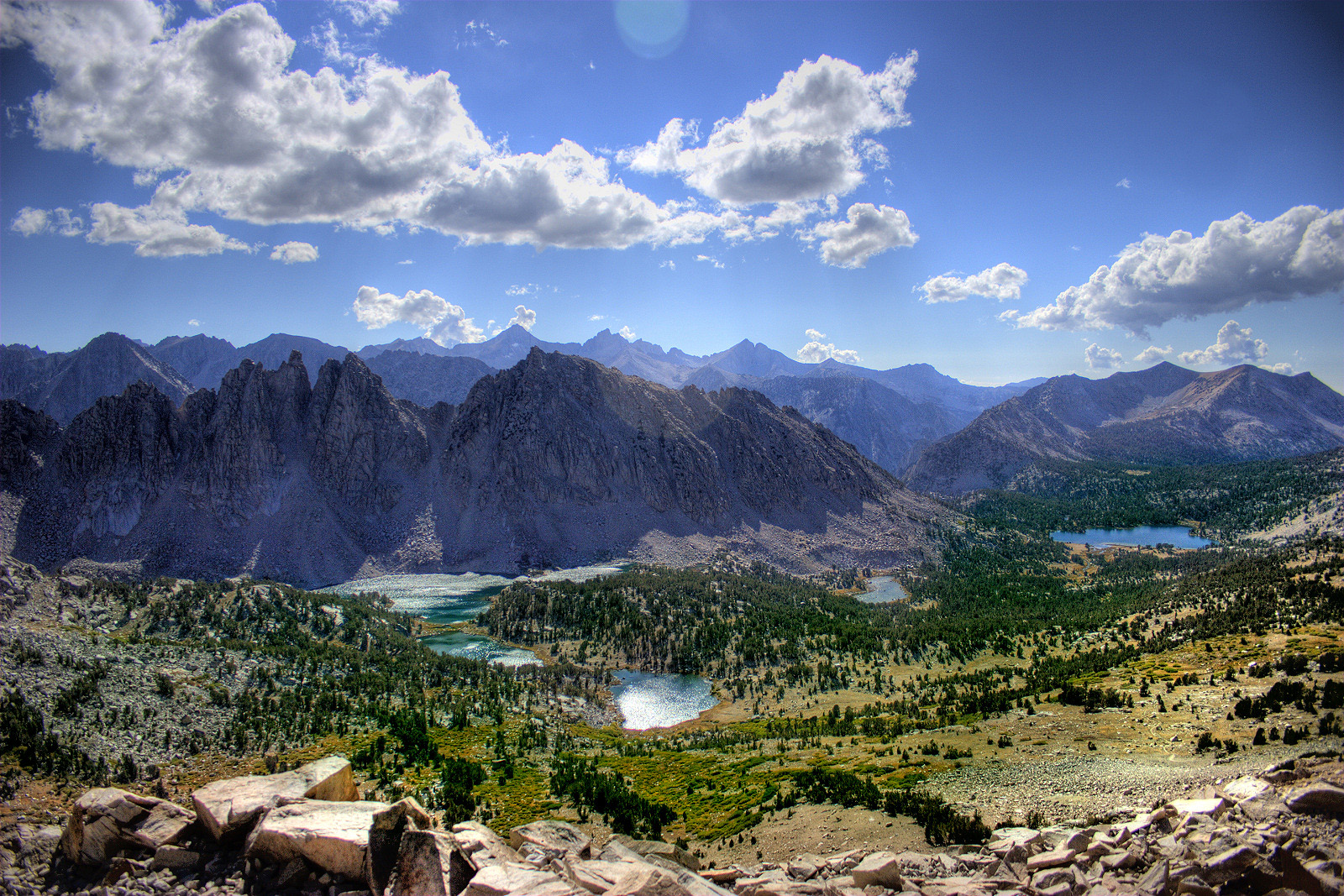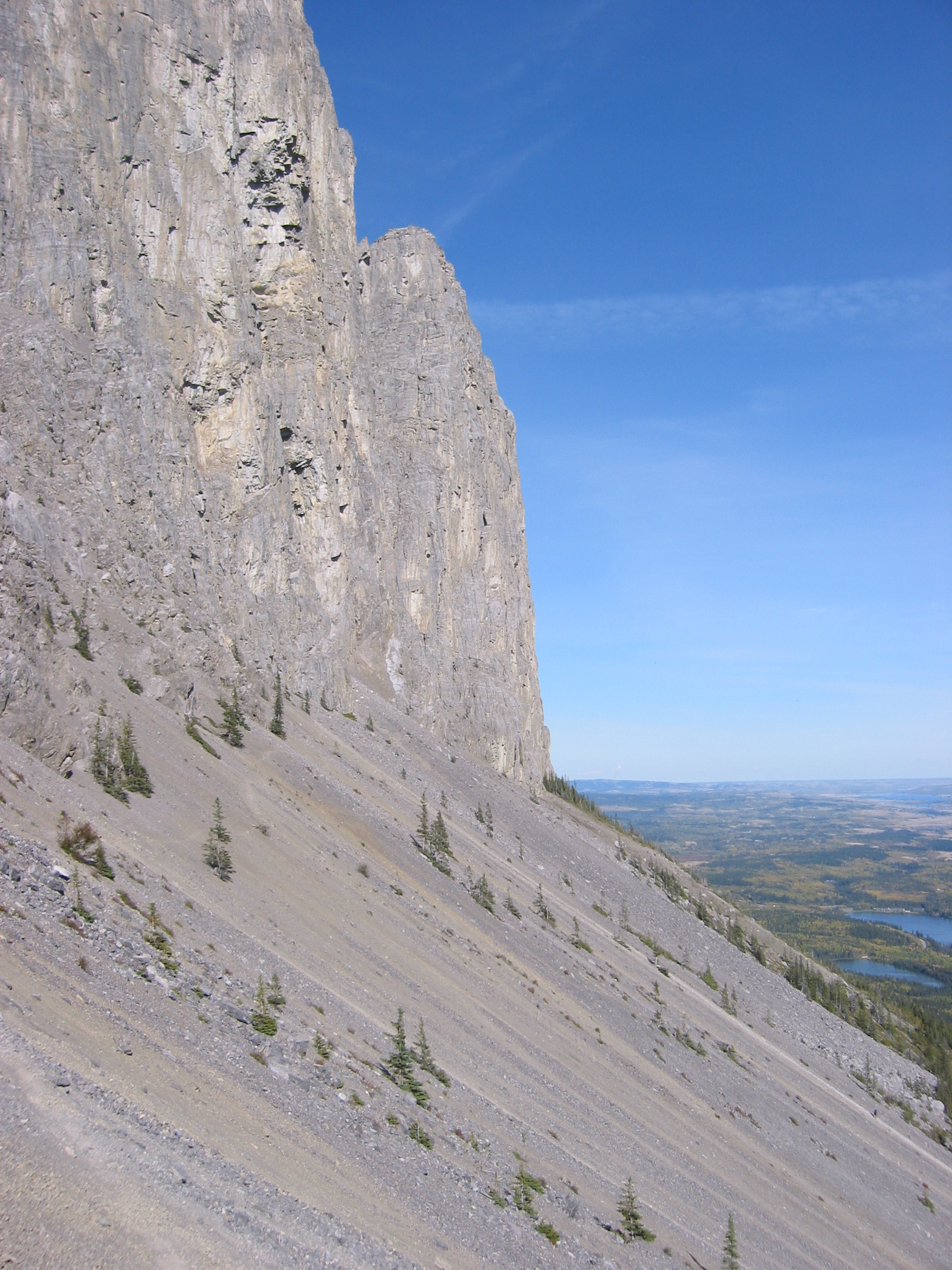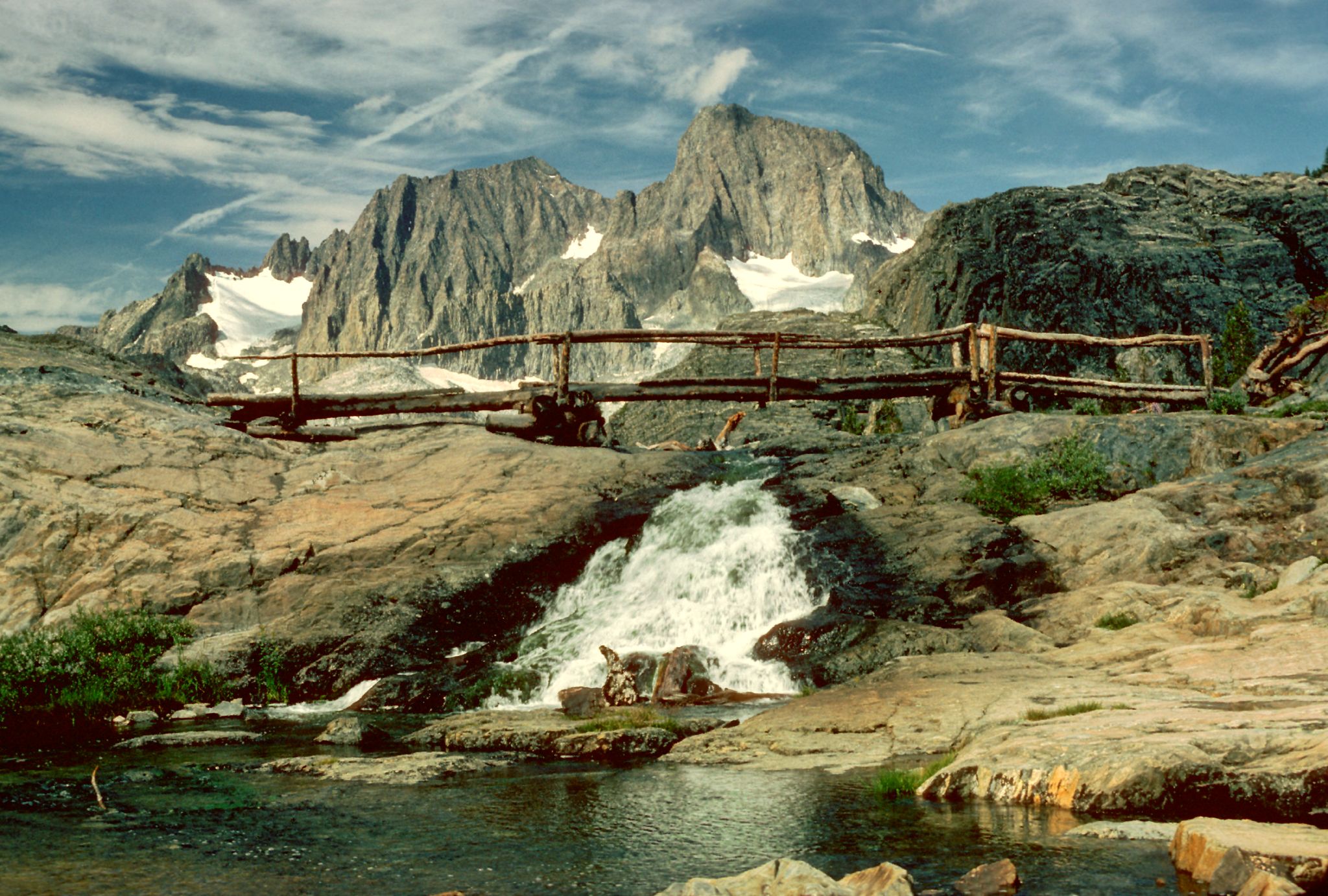|
Polemonium Eximium
''Polemonium eximium'', the skypilot or showy sky pilot, is a perennial plant in the phlox family (Polemoniaceae) that grows at high altitudes (mostly above ).Sierra Nevada Wildflowers, Elizabeth Horn, Mountain Press Publishing Co., , 1998, p. 126 It is endemic to the Sierra Nevada in California where it grows in the talus of the high mountain slopes.Sierra Nevada Wildflowers, Karen Wiese, 2nd ed., 2013 Wildflower enthusiasts consider it to be among the best of the Sierra wildflowers, and highly rewarding to find. Habitat and range It mostly occurs at elevations from in the Central and Southern Sierra Nevada. It mostly occurs in colonies in stark surroundings, above , in rocky areas that appear mostly devoid of soil, and rarely in association with other plants. Most notably, it can be found at the upper reaches of Mt. Whitney, both via the main trail and mountaineer's route, as well as the southern flanks of Mt Langley in the Inyo National Forest. Additionally, it resides near ... [...More Info...] [...Related Items...] OR: [Wikipedia] [Google] [Baidu] |
Edward Lee Greene
Edward Lee Greene (August 20, 1843–November 10, 1915) was an American botanist known for his numerous publications including the two-part ''Landmarks of Botanical History'' and the describing of over 4,400 species of plants in the American West. Early life Edward Lee Greene was born on August 20, 1843 in Hopkinton, Rhode Island. In 1859 Greene moved to Wisconsin and began studying at Albion Academy, a very reputable institution with a religious emphasis. There Greene met Thure Kumlien, a Swedish Naturalist with an interest in botany. Greene accompanied Kumlein on field trips, further developing Greene's interest in botany. In August 1862, Greene joined his father and brothers in joining the 13th Wisconsin Volunteer Infantry Regiment of the Union Army. Though he never rose above the rank of private in his three years of service, Greene was able to advance his botanical studies, collecting specimens as he marched through Tennessee, Kentucky and Alabama. Following his release ... [...More Info...] [...Related Items...] OR: [Wikipedia] [Google] [Baidu] |
Perennial Plant
A perennial plant or simply perennial is a plant that lives more than two years. The term ('' per-'' + '' -ennial'', "through the years") is often used to differentiate a plant from shorter-lived annuals and biennials. The term is also widely used to distinguish plants with little or no woody growth (secondary growth in girth) from trees and shrubs, which are also technically perennials. Perennialsespecially small flowering plantsthat grow and bloom over the spring and summer, die back every autumn and winter, and then return in the spring from their rootstock or other overwintering structure, are known as herbaceous perennials. However, depending on the rigours of local climate (temperature, moisture, organic content in the soil, microorganisms), a plant that is a perennial in its native habitat, or in a milder garden, may be treated by a gardener as an annual and planted out every year, from seed, from cuttings, or from divisions. Tomato vines, for example, live several y ... [...More Info...] [...Related Items...] OR: [Wikipedia] [Google] [Baidu] |
Polemoniaceae
The Polemoniaceae (Jacob's-ladder or phlox family) are a family of flowering plants consisting of about 25 genera with 270–400 species of annuals and perennials native to the Northern Hemisphere and South America, with the center of diversity in western North America. Only one genus (''Polemonium'') is found in Europe, and two (''Phlox'' and ''Polemonium'') in Asia, where they are confined to cool temperate to arctic regions; both genera also occur more widely in North America, suggesting relatively recent colonization of the Old World from North America. The family can be distinguished from most other eudicot families by the ovary made up of three fused carpels (usually with three chambers, but with one chamber in some species). The members of the family have five sepals, five petals fused, and five stamens that alternate with the lobes of the corolla. For decades, most sources used a classification of the family published by Grant in 1959, but new evidence, including mol ... [...More Info...] [...Related Items...] OR: [Wikipedia] [Google] [Baidu] |
Endemism
Endemism is the state of a species being found in a single defined geographic location, such as an island, state, nation, country or other defined zone; organisms that are indigenous to a place are not endemic to it if they are also found elsewhere. For example, the Cape sugarbird is found exclusively in southwestern South Africa and is therefore said to be ''endemic'' to that particular part of the world. An endemic species can be also be referred to as an ''endemism'' or in scientific literature as an ''endemite''. For example '' Cytisus aeolicus'' is an endemite of the Italian flora. '' Adzharia renschi'' was once believed to be an endemite of the Caucasus, but it was later discovered to be a non-indigenous species from South America belonging to a different genus. The extreme opposite of an endemic species is one with a cosmopolitan distribution, having a global or widespread range. A rare alternative term for a species that is endemic is "precinctive", which applies to ... [...More Info...] [...Related Items...] OR: [Wikipedia] [Google] [Baidu] |
Sierra Nevada (U
The Sierra Nevada () is a mountain range in the Western United States, between the Central Valley of California and the Great Basin. The vast majority of the range lies in the state of California, although the Carson Range spur lies primarily in Nevada. The Sierra Nevada is part of the American Cordillera, an almost continuous chain of mountain ranges that forms the western "backbone" of the Americas. The Sierra runs north-south and its width ranges from to across east–west. Notable features include General Sherman, the largest tree in the world by volume; Lake Tahoe, the largest alpine lake in North America; Mount Whitney at , the highest point in the contiguous United States; and Yosemite Valley sculpted by glaciers from one-hundred-million-year-old granite, containing high waterfalls. The Sierra is home to three national parks, twenty wilderness areas, and two national monuments. These areas include Yosemite, Sequoia, and Kings Canyon National Parks; and Devils ... [...More Info...] [...Related Items...] OR: [Wikipedia] [Google] [Baidu] |
Scree
Scree is a collection of broken rock fragments at the base of a cliff or other steep rocky mass that has accumulated through periodic rockfall. Landforms associated with these materials are often called talus deposits. Talus deposits typically have a concave upwards form, where the maximum inclination corresponds to the angle of repose of the mean debris particle size. The exact definition of scree in the primary literature is somewhat relaxed, and it often overlaps with both ''talus'' and ''colluvium''. The term ''scree'' comes from the Old Norse term for landslide, ''skriða'', while the term ''talus'' is a French word meaning a slope or embankment. In high-altitude arctic and subarctic regions, scree slopes and talus deposits are typically adjacent to hills and river valleys. These steep slopes usually originate from late-Pleistocene periglacial processes. Notable scree sites in Eastern North America include the Ice Caves at White Rocks National Recreation Area in southern Ve ... [...More Info...] [...Related Items...] OR: [Wikipedia] [Google] [Baidu] |
Inyo National Forest
Inyo National Forest is a United States National Forest covering parts of the eastern Sierra Nevada of California and the White Mountains of California and Nevada. The forest hosts several superlatives, including Mount Whitney, the highest point in the contiguous United States; Boundary Peak, the highest point in Nevada; and the Ancient Bristlecone Pine Forest, which protects the oldest living trees in the world. The forest, encompassing much of the Owens Valley, was established by Theodore Roosevelt as a way of sectioning off land to accommodate the Los Angeles Aqueduct project in 1907, making the Inyo National Forest one of the least wooded forests in the U.S. National Forest system. Geography The forest covers and includes nine designated wilderness areas which protect over . Most of the forest is in California, but it includes about in western Nevada. It stretches from the eastern side of Yosemite to south of Sequoia National Park. Geographically it is split in two, one ... [...More Info...] [...Related Items...] OR: [Wikipedia] [Google] [Baidu] |
Mount Dana
Mount Dana is a mountain in the U.S. state of California. Its summit marks the eastern boundary of Yosemite National Park and the western boundary of the Ansel Adams Wilderness. At an elevation of , it is the second highest mountain in Yosemite (after Mount Lyell (California), Mount Lyell), and the northernmost summit in the Sierra Nevada which is over in elevation. Mount Dana is the highest peak in Yosemite that is a simple hike to the summit. The mountain is named in honor of James Dwight Dana, who was a professor of natural history and geology at Yale University, Yale. Mount Dana is composed of batholith, prebatholithic rock that is mostly reddish metamorphic rock, which was composed by metavolcanics of surfacing magma from the Mesozoic Era. Mount Dana's northern face includes a small, receding glacier known as the Dana Glacier (California), Dana Glacier. The Dana Meadows (California), Dana Meadows lie at the foot of the mountain. From the top, lakes throughout Dana Meadows, ... [...More Info...] [...Related Items...] OR: [Wikipedia] [Google] [Baidu] |
Yosemite National Park
Yosemite National Park ( ) is an American national park in California, surrounded on the southeast by Sierra National Forest and on the northwest by Stanislaus National Forest. The park is managed by the National Park Service and covers an area of and sits in four County, countiescentered in Tuolumne County, California, Tuolumne and Mariposa County, California, Mariposa, extending north and east to Mono County, California, Mono and south to Madera County, California, Madera County. Designated a World Heritage Site in 1984, Yosemite is internationally recognized for its granite cliffs, waterfalls, clear streams, Sequoiadendron giganteum, giant sequoia groves, lakes, mountains, meadows, glaciers, and Biodiversity, biological diversity. Almost 95 percent of the park is designated National Wilderness Preservation System, wilderness. Yosemite is one of the largest and least fragmented habitat blocks in the Sierra Nevada, and the park supports a diversity of plants and animals. The ... [...More Info...] [...Related Items...] OR: [Wikipedia] [Google] [Baidu] |
Inflorescence
An inflorescence is a group or cluster of flowers arranged on a stem that is composed of a main branch or a complicated arrangement of branches. Morphologically, it is the modified part of the shoot of seed plants where flowers are formed on the axis of a plant. The modifications can involve the length and the nature of the internodes and the phyllotaxis, as well as variations in the proportions, compressions, swellings, adnations, connations and reduction of main and secondary axes. One can also define an inflorescence as the reproductive portion of a plant that bears a cluster of flowers in a specific pattern. The stem holding the whole inflorescence is called a peduncle. The major axis (incorrectly referred to as the main stem) above the peduncle bearing the flowers or secondary branches is called the rachis. The stalk of each flower in the inflorescence is called a pedicel. A flower that is not part of an inflorescence is called a solitary flower and its stalk is al ... [...More Info...] [...Related Items...] OR: [Wikipedia] [Google] [Baidu] |
Sepal
A sepal () is a part of the flower of angiosperms (flowering plants). Usually green, sepals typically function as protection for the flower in bud, and often as support for the petals when in bloom., p. 106 The term ''sepalum'' was coined by Noël Martin Joseph de Necker in 1790, and derived . Collectively the sepals are called the calyx (plural calyces), the outermost whorl of parts that form a flower. The word ''calyx'' was adopted from the Latin ,Jackson, Benjamin, Daydon; A Glossary of Botanic Terms with their Derivation and Accent; Published by Gerald Duckworth & Co. London, 4th ed 1928 not to be confused with 'cup, goblet'. ''Calyx'' is derived from Greek 'bud, calyx, husk, wrapping' ( Sanskrit 'bud'), while is derived from Greek 'cup, goblet', and the words have been used interchangeably in botanical Latin. After flowering, most plants have no more use for the calyx which withers or becomes vestigial. Some plants retain a thorny calyx, either dried or live, as ... [...More Info...] [...Related Items...] OR: [Wikipedia] [Google] [Baidu] |
Urine
Urine is a liquid by-product of metabolism in humans and in many other animals. Urine flows from the kidneys through the ureters to the urinary bladder. Urination results in urine being excretion, excreted from the body through the urethra. Cell (biology), Cellular metabolism generates many by-products that are rich in nitrogen and must be clearance (medicine), cleared from the Circulatory system, bloodstream, such as urea, uric acid, and creatinine. These by-products are expelled from the body during urination, which is the primary method for excreting water-soluble chemicals from the body. A urinalysis can detect nitrogenous wastes of the mammalian body. Urine plays an important role in the earth's nitrogen cycle. In balanced ecosystems, urine fertilizes the soil and thus helps plants to grow. Therefore, Reuse of excreta, urine can be used as a fertilizer. Some animals use it to territory (animal)#Scent marking, mark their territories. Historically, aged or fermented urine (kn ... [...More Info...] [...Related Items...] OR: [Wikipedia] [Google] [Baidu] |

.jpg)




